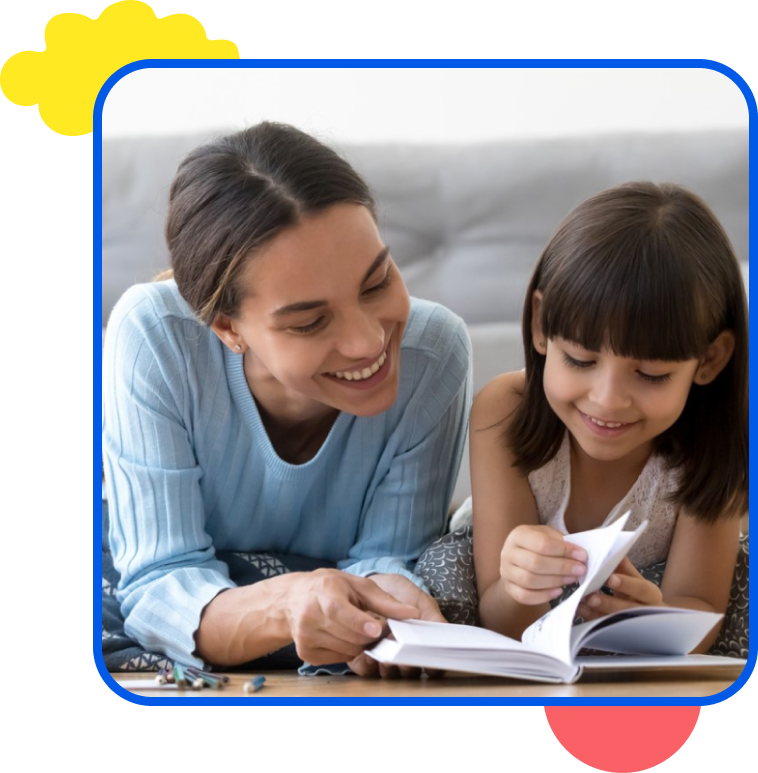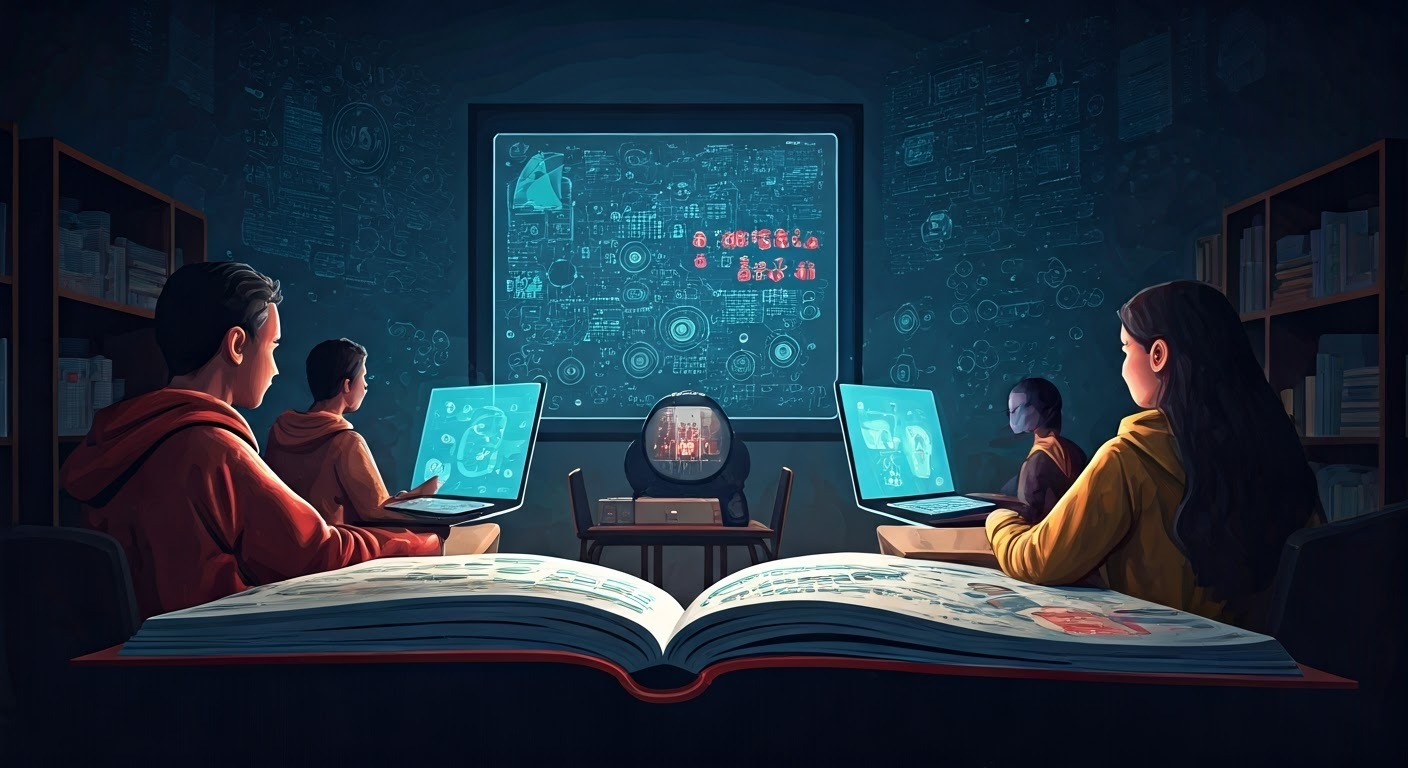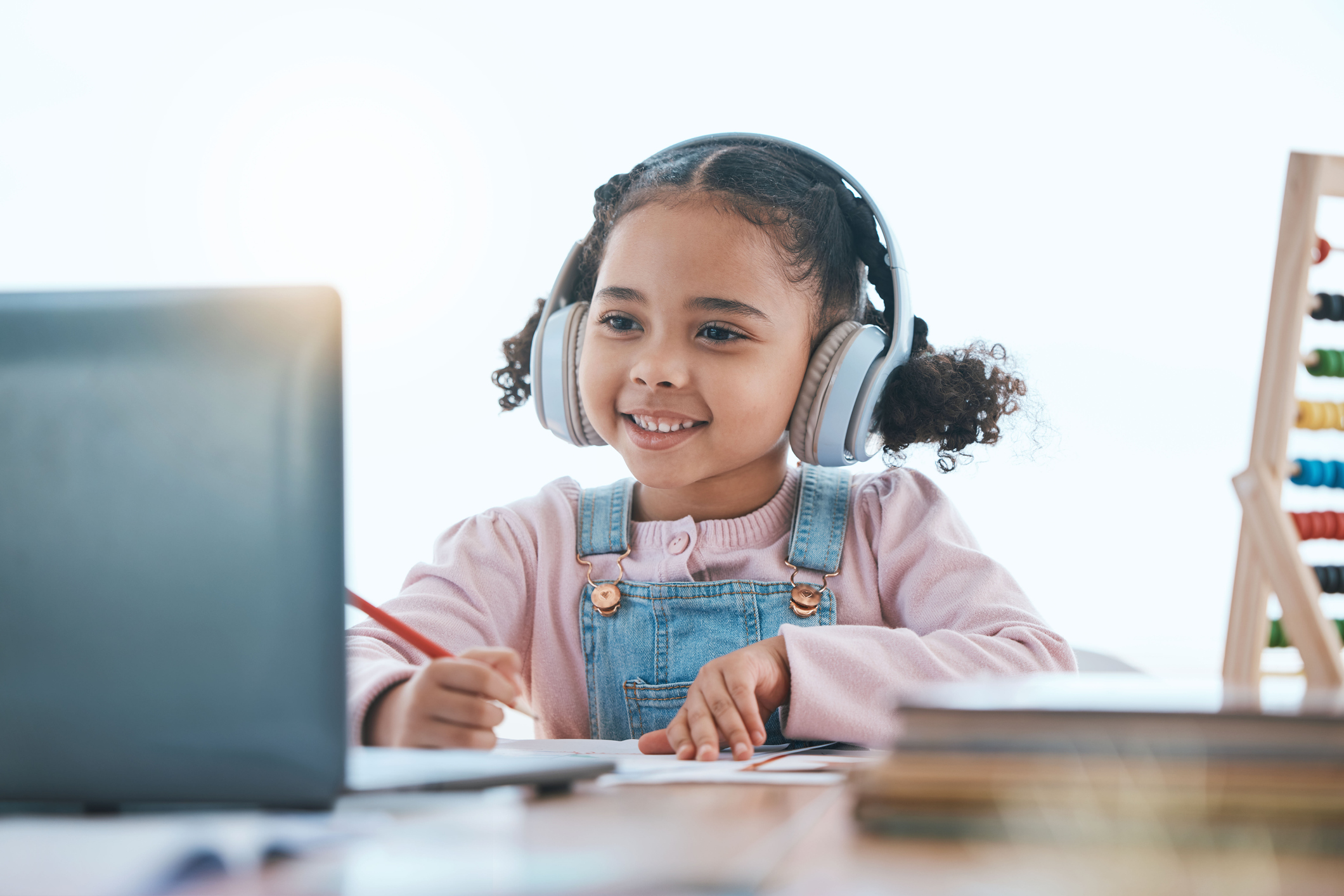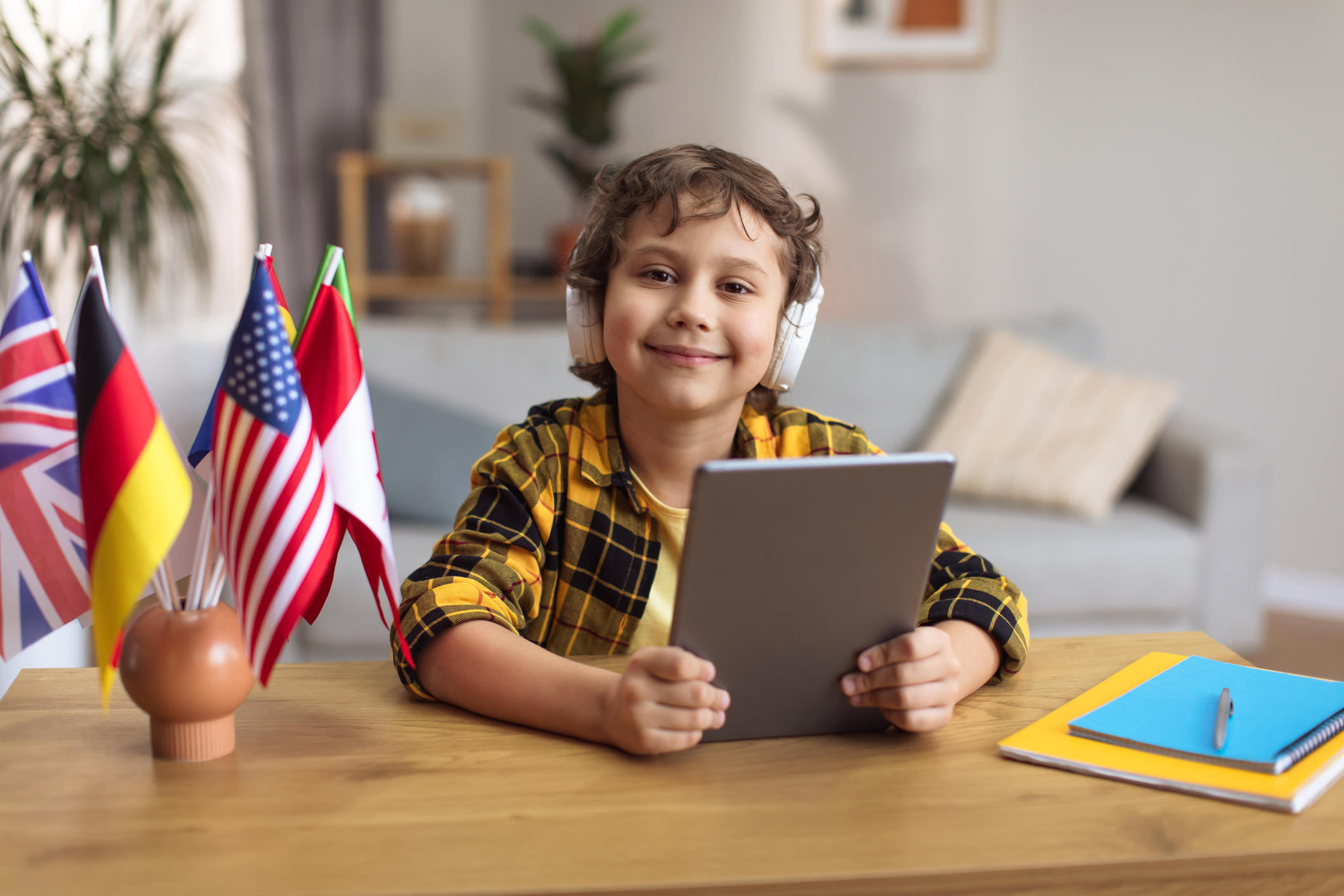Your Child Should Learn Arabic Online and Here’s Why




We want to cultivate the very best path of opportunities for our kids, encouraging them to grow into self-assured and promising young adults.
The world is constantly merging into multicultural zones, creating beautiful highlights and contrasts of cultures, but within this blending process, our younger members can lose touch with their roots and find themselves competing to stand out in the crowd on various fronts.
Learning Arabic online can give them that needed connection to their ancestry while providing them with the coveted skill of bilingualism.
Providing a roof, clothes, safety, security, homework help, cleaning, cooking, maintenance, etc for your kids – all while working a full-time job – can be overwhelming; it’s hard to imagine teaching an extra language on top of all that. Many households have Arabic-speaking parents while their second-generation immigrant children have mainly only retained the English spoken around them. The parents may feel disconnected from their children and worry that their children are missing out on a major aspect of their heritage.
Introducing Arabic is often an endeavour that’s considered but then abandoned because the idea is so daunting and so many teachable options lack the flexibility and fun needed for a busy family with a distractible young one.
The truth is, there are online options that will adapt to your family’s schedule and needs, while engaging your little one.
How Kids Learn Best
Some parents go for mobile apps, hoping the screen’s vibrancy will command their attention. Unfortunately, implementing apps to learn Arabic online for kids can be limiting since their programming isn’t properly interactive or individualized.
# Lack of conversational dimension
They can also lack the conversational and sensory dimension needed to help with retention.
# Geared toward learning for adults
Some apps can be costly, while others aren’t suitable to learn Arabic online for kids, but are instead geared more toward adults.
# Best suited for maintenance
Apps seem to be good for maintenance but not as the main source of curriculum.
The best time to learn Arabic online for kids is between the ages of 1-13 while their brains are still elastic.
Learning Arabic Online for Kids
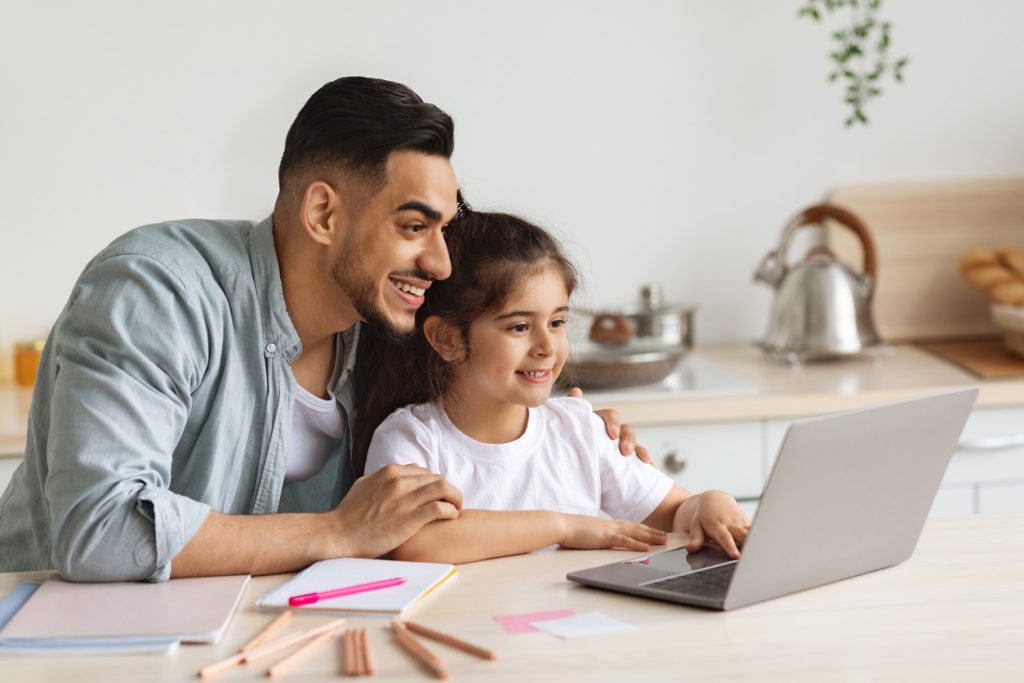
Instead, more and more parents are turning to collaborative online programs like LingoCircle to teach and learn Arabic online for kids.
# Curriculum built by Foreign Language experts and Childhood educators
Not only are the programs adaptable and fluid to the individual, they’re also socially immersive, structured, and integrated with home life. Assignments, activities, and a curriculum built by certified foreign language experts, while a professional instructor conducts the class online with a small handful of other kids.
# Small group format that fosters engagement and a sense of community
The best online language programs for kids understood that learning one on one with a tutor for younger kids won’t create the best engagement. Instead learning with a small group of children sharing similar background will not only help increase engagement, children can also relate to one another. They are happy to meet other children alike. Creating international friendships with children with same family dynamic makes such an impact. They understand why they’re learning the language, they belong to a community.
# Gamification paired with traditional learning experience
In order to create consistency, children need to have fun. The best way for them to learn is for them to not realize they are learning. Learning Arabic online for kids comes with gamification. Curriculum are built around games and themes geared toward what appeals to each age group. It is difficult enough to get children to learn a language they sometime do not speak at home, so having fun and a curriculum built by K-12 education expert is key to making this a successful endeavour.
What ensues is learning on a holistic level; invoking all the senses to retain the material through songs, readings, games, exercises, conversation, and playing together.
These well-rounded programs seem to yield the best results by far. It’s not easy to learn Arabic online for kids – they need to be engaged and having fun, otherwise, they lose focus. Classroom models tend to center blackboards and grammar textbooks rather than play and sensory development. Plus, you don’t want to give up any more of your time with them to some stuffy classroom.
With LingoCircle, you get to enjoy seeing and hearing about their learning journey while still being able to tend to your many other responsibilities. This will help you to help them when the cameras turn off, and you can also find additional support in the online learning group with the other parents taking part.
Your child will become more enriched and motivated every class and you’ll start to see all the possibilities opening up ahead of them and we want to help that vision become more clear. They’ll be able to do so many things that monolingual people won’t get to experience.
How Your Child Will Benefit From Being Bilingual
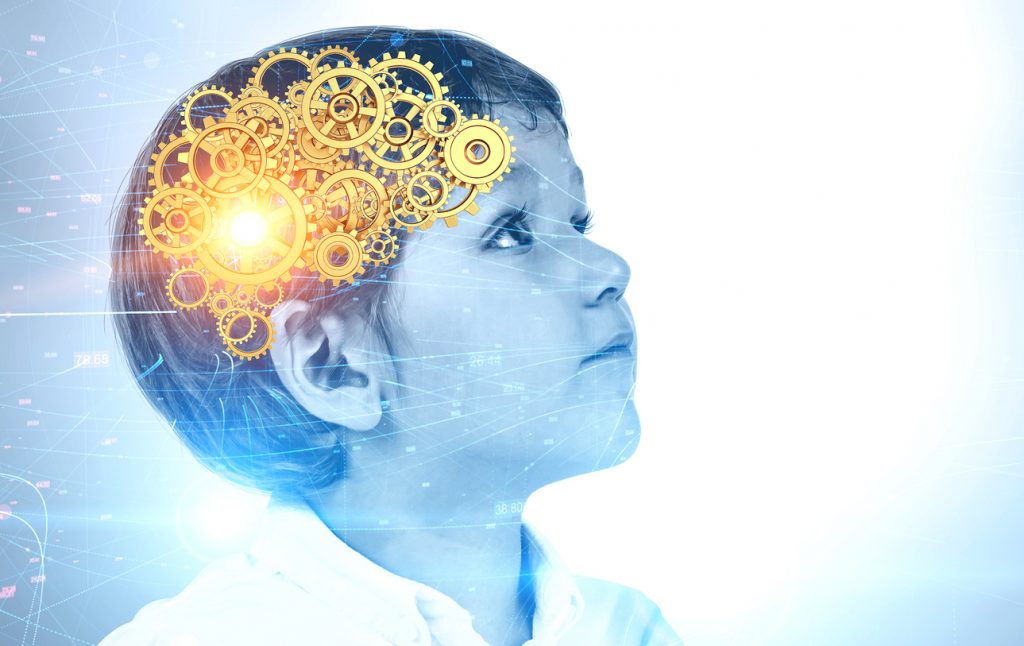
Learning a language expands the mind and increases the impact of positive impressions within society. In the process of learning a language, the brain begins to stretch and build in really dynamic ways, becoming more:
- Creative
- Adaptable
- Focused/Attentive
- Able to multitask
- Retaining (holding things in memory more efficiently and fighting off Alzheimer’s and Dementia)
- Adept at problem-solving and critical thinking
- Adept at communication and emotional intelligence.
These traits then translate to many other physical and opportunistic benefits. People who grew up learning more than one language test and score better in school, accumulate more nuanced cultural and literary interests & knowledge and are more likely to qualify for scholarships and grants based on linguistics or other byproducts of their curious minds.
Bilingual folks enjoy travelling with ease to a number of countries, connecting with people from other cultures they would never have been able to with a language barrier. Making connections like these significantly alters our worldviews and helps to make us more multifaceted people with balanced perspectives.
Even more, enlightenment opens up for our kids when they get to connect with their personal heritage and mother tongue.
How Your Child Will Benefit from Learning Arabic
Arabic is such a wonderful language, carrying with it context for such a rich and lively community, culture, and spirituality just waiting to be understood in all its complexity. There are so many advantages to learning Arabic online for kids to gain insight into the language – even if it isn’t their background. The more immersed they become, the more they’ll naturally take on the speech patterns, pronunciation, accent, and slang too.
#Financially
The Middle East is seeing an influx in their economy thanks to the abundance of valuable natural resources in the region. With the language in tow, one can leverage many well-paying job prospects in their favor. The demand for English-Arabic speakers is high for positions like research, investment, development, translation, negotiation, military liaisons, international relations, overseas coordination, and general business operations. Less than 1% of US students can speak Arabic as well as English, making these frontiers much less competitive for those who do. Your child will stand out in a market that tends to pay very well.
#Emotionally
Arabic, though not too popular in North America, is still in the top 5 most widely spoken languages on earth, with vast spacial coverage. Over 290 million people speak Arabic worldwide, each becoming a potentially significant person in your child’s life. Imagine all the extra connections and possibilities! Being able to communicate with fellow humans is one of the most rewarding and influential forces we can find, especially those who live differently from us. Who knows, your child’s soul mate or future business partner could be an Arabic speaker.
#Intelligently
Many other languages have Arabic at their center, making it what’s called a bridge language. If your child learns Arabic, they’re already halfway to learning Farsi and considerably closer to knowing Turkish and Hebrew. The foundation is already going to be there, making other language patterns and accents much easier to grasp. Why stop at two?
It’s like a buy 1, get 3 for half-price kind of deal. So many new windows open up for those who have even elementary knowledge of multiple languages. Muscle memory is able to create associations and link connections quickly, helping with remembering new words and phrases, even in a different language. Just like Spanish is easier to learn if you know French, as they’re both Latin-based – Arabic and its adjacent languages are all Semitic style languages, carrying related words and roots throughout. Even unrelated languages carry Arabic influence, like English and French, making it a crucial linguistic centerpiece.
English words that are inspired by Arabic include:
- Alcohol
- Magazine
- Ghoul
- Algebra
- Sofa
- Candy
- Checkmate
- Coffee
- Saffron
- Average
- Cotton
#Culturally
Learning Arabic is about so much more than collecting an extra language; it can become a monumental step in destigmatizing the culture as a whole. When you can understand the words, you can become part of the narrative. Inserting oneself into, or even just listening to, the polarizing discourses surrounding Arabic religion, war, and customs is only productive when you’re exposed to all sides, which means you first must understand the Arabic people and their perspectives.
Your child may not become part of those heavy conversations for a while, but giving them the option will give them the freedom to make informed decisions on where they stand on certain issues without Western bias. A 2010 Gallup poll found that 52% of Arabs in the US had experienced discrimination and xenophobia in the last year. This was higher than any other racial demographic that was polled. Adjacently, less than half (32%) of Americans held favorable views of Arabs and Arabic culture. In a post-9/11 world, Middle Easterners need all the understanding they can get. Set your child up to see the world as it really is; not in black and white.
Through language, they’ll gain insights into the political history, militarization of certain regions, religious beliefs, economy, and traditions of many Arabic-speaking areas. Islam is the second most practiced religion worldwide, though it is largely debated and misrepresented, for better or worse. It is the framework behind many governing bodies and societies, and your child will be able to bridge the gap between Western and Middle Eastern ideologies, forming curated perspectives that ring true to them based on a wide variety of factors and perspectives.
Your child will get to enjoy the staples of Arabic pop culture as well! They’ll enjoy beautiful artists like Amr Diab and Nancy Ajram singing profound lyrics and weaving beautiful stories. They’ll get to experience cinematic phenomenons like West Beirut, Al-Mummia, and Theeb, to name a few. They’ll explore literature classics like One Thousand and One Nights/Arabian Nights, Honor, and, of course, The Qur’an. This exposure will be responsible for their reference points in life, giving them more areas of experience and perceptions to draw from.
Arabic culture holds some of the most ancient and prevalent influences on the world at large. Understanding its history and affluence is key to understanding all other cultures and societies as well. Much of the Western civilization is built on international exchange, immigration, and inspiration from the Middle East.
#Soulfully
Arab speakers are proud of their ancient heritage. When they hear others making the effort to communicate with them in their native tongue, they are automatically disarmed and appreciative. They are happy to show off their language and culture, rewarding anyone trying to learn from them or relate to them. Beautiful friendships and connections can be made from such efforts and rewards.
Your child will grow up to be able to travel to some of the most beautiful Arabic-speaking places on earth, including Egypt, Morocco, Lebanon, and Israel, to name a few. These locations hold rich and haunting histories, delicious food, and breathtaking scenery. Don’t even get us started on the architecture and resilient people.
Arab people are historically some of the most tenacious communities, overcoming harsh conditions like prolonged droughts, elemental exposure, invasion, etc, while remaining tender and gracious. They’re hospitable and kind people, even while under tense governing conditions and oppressive forces. It’s impossible to visit these places and commune with these people without becoming a more whole person.
Who wouldn’t want these things for their children?
You would do anything to help your children and make sure they get the best support and education possible. You can start the journey with LingoCircle to learn Arabic online for kids who deserve a leg up in the world and a rich connection to their heritage. Qualified experts, friendly classmates, and a comprehensive program are what sets us apart from apps and stuffy classrooms! What are you waiting for?
Check out our program to learn Arabic online for kids here!


Simple Ways to Learn a Second Language at Home
Get resources and tips to help supplement your bilingual education journey at home.
By providing your email you are signing up to receive emails from Bilingual Bebe. Privacy Policy
